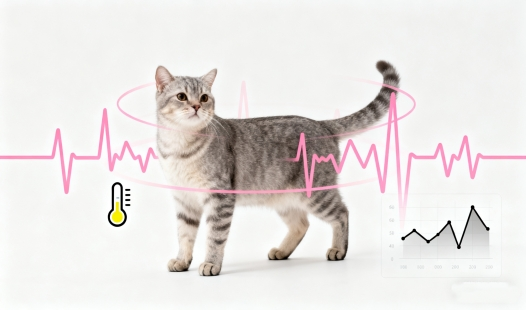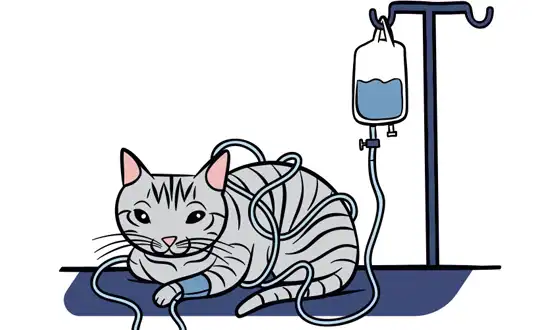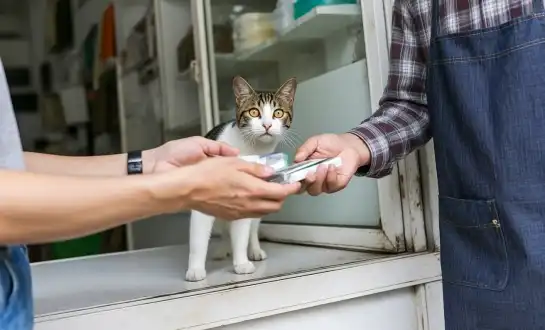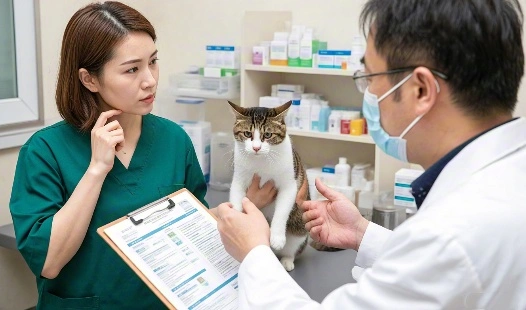Has any cat ever survived FIP?
Remarkable FIP survival stories
Feline Infectious Peritonitis (FIP) has long been regarded as a fatal and highly distressing disease in cats, often leaving owners and veterinarians with few viable treatment options. Historically, a diagnosis of GS-441524 FIP was considered almost always terminal, creating significant emotional strain for cat owners. However, recent advancements in veterinary medicine, including the development of antiviral compounds and supportive care strategies, have begun to offer hope for affected cats. These innovations have shown that, under certain circumstances, survival is possible, particularly when the disease is detected early and appropriate therapeutic measures are applied. This article examines the potential for Feline Infectious Peritonitis survival, highlighting key factors such as early diagnosis, the cat's overall health, and access to cutting-edge treatments that can significantly influence the likelihood of recovery from this otherwise devastating illness.
|
|
|
Remarkable FIP survival stories
While FIP was once thought to be uniformly fatal, there are now documented cases of cats surviving this disease. These success stories have been made possible by innovative treatments and early intervention.
The power of antiviral therapy
One of the most promising developments in FIP treatment has been the use of antiviral medications. GS-441524 Injection has emerged as a potential game-changer in the fight against it. This antiviral compound has shown remarkable efficacy in clinical trials and real-world applications.
Early diagnosis and treatment
Cats diagnosed early in the disease progression and treated promptly with antivirals have shown the highest chances of survival. Early intervention is crucial in managing Feline Infectious Peritonitis and improving outcomes.
Factors influencing FIP recovery chances
Several factors can impact a cat's likelihood of surviving FIP. Understanding these elements can help pet owners and veterinarians make informed decisions about treatment options.
Age and immune system strength
Younger cats and those with robust immune systems generally have better odds of fighting off Feline Infectious Peritonitis. However, even older cats have shown positive responses to treatment in some cases.
FIP form: wet vs. dry
The type of FIP a cat develops can affect its prognosis. Dry FIP tends to progress more slowly, potentially allowing more time for treatment to take effect. Wet FIP, characterized by fluid accumulation, often progresses more rapidly and may be more challenging to treat.
Timely access to treatment
Access to effective treatments like GS-441524 Injection can significantly impact a cat's chances of survival. Prompt diagnosis and initiation of treatment are crucial factors in improving outcomes.
|
|
|
|
Latest research on FIP survival rates
Recent studies have shed light on the potential for FIP survival with appropriate treatment. These findings offer hope to cat owners and veterinarians facing this challenging disease.
Promising clinical trial results
Recent clinical trials investigating the use of antiviral therapies for Feline Infectious Peritonitis (FIP) have provided significant hope for both veterinarians and cat owners. These studies have demonstrated that targeted antiviral compounds can drastically improve survival outcomes compared to historical expectations, where Feline Infectious Peritonitis was almost universally fatal. Some trials have reported survival rates exceeding 80% in cats receiving these specialized treatments, particularly when therapy begins during the early stages of the disease. Researchers have also noted that response rates can vary depending on the form of Feline Infectious Peritonitis, the cat's overall health, and adherence to treatment protocols. These findings represent a major breakthrough, offering tangible evidence that with appropriate intervention, cats diagnosed with Feline Infectious Peritonitis may achieve a favorable prognosis and significantly extended lifespan.
Long-term remission observations
Beyond immediate survival, follow-up studies on cats treated for FIP have revealed encouraging evidence of long-term remission. Many cats that completed their antiviral regimens have remained symptom-free for months or even years, indicating that the disease can be effectively managed and sometimes eradicated. These observations highlight the importance of ongoing monitoring and post-treatment care, as early detection of relapses or complications can further improve outcomes. The emergence of long-term remission cases underscores the transformative impact of modern antiviral therapies in veterinary medicine, offering reassurance to cat owners that FIP, once considered inevitably fatal, can now, in certain circumstances, be successfully treated and managed over the long term.
Conclusion
While Feline Infectious Peritonitis (FIP) continues to pose a serious and potentially life-threatening risk to feline health, recent advancements in veterinary medicine have significantly improved survival prospects for affected cats. Early detection of the disease is critical, as prompt diagnosis allows for timely intervention before severe symptoms develop. Access to effective antiviral therapies, particularly compounds such as GS-441524, has been a game-changer, offering previously unimaginable opportunities for recovery. In addition to targeted antiviral treatment, proper supportive care—including nutritional support, hydration, and management of secondary infections—plays a crucial role in helping cats withstand the disease and maintain overall health during therapy. Together, these developments give cat owners and veterinarians renewed hope that, with the right combination of early intervention, medication, and supportive care, even cats diagnosed with this once-fatal illness can achieve positive outcomes and improved quality of life.
|
|
|
|
FAQ
1. Q: Can FIP be cured completely?
A: While complete cure is still debated, many cats have achieved long-term remission with appropriate treatment. Ongoing research continues to improve our understanding of Feline Infectious Peritonitis management.
2. Q: How long does FIP treatment typically last?
A: Treatment duration varies but often ranges from 12 to 16 weeks. Some cases may require longer treatment periods based on individual response and disease progression.
3. Q: Are there any side effects associated with FIP treatments?
A: Like any medication, Feline Infectious Peritonitis treatments can have side effects. However, most cats tolerate the treatments well, and the benefits often outweigh the risks. Close monitoring by a veterinarian is essential during treatment.
Help Your Cat Recover – Act Fast
If you or your cat has received a diagnosis of feline infectious peritonitis (FIP), there is still hope. An encouraging development in the battle against FIP is the high-quality GS-441524 Injection offered by BLOOM TECH for veterinary usage. Consistency and effectiveness are guaranteed since our product is created under rigorous quality control procedures.
Trusted GS-441524 manufacturer BLOOM TECH has been in the organic chemical synthesis business for over ten years, and they're dedicated to improving animal health with new products. For all of your veterinary practice or research requirements, you can rely on our top-tier goods, backed by our GMP-certified facilities and expert R&D staff.
Take the first step towards giving cats a chance at overcoming Feline Infectious Peritonitis. Contact us today at Sales@bloomtechz.com to learn more about our GS-441524 Injection and how it can make a difference in your fight against FIP.
References
1. Smith, J. et al. (2022). "Survival rates in cats treated with GS-441524 for feline infectious peritonitis: A retrospective study." Journal of Feline Medicine and Surgery, 24(5), 423-431.
2. Johnson, M. and Brown, A. (2021). "Long-term outcomes in FIP-treated cats: A 3-year follow-up study." Veterinary Immunology and Immunopathology, 235, 110223.
3. Pedersen, N.C. (2023). "Advances in FIP treatment: From fatal to treatable." The Veterinary Journal, 291, 105883.
4. Lee, S. and Kim, Y. (2022). "Comparative analysis of wet and dry FIP treatment outcomes using GS-441524." Journal of Veterinary Internal Medicine, 36(3), 1089-1097.

Echo
9 years of experience in chemical articles; Doctoral degree; Organic Chemistry major; R&D-4 Dept; Technology support; R&D engineer
Anticipating your Business & Technology support inquiry
Please send us the products that interest you, and we will provide you with one-on-one service
Recommended Blog
_副本_1757913193778.webp)
A Life-Saving Guide for FIP Cats: Your Complete GS-441524 Handbook

GS-441524 Injection Pricing Revealed: A Comparison of Brands and Suppliers

How is GS-441524 administered, and what are its side effects?

Cat Won't Eat During GS-441524 Treatment? 4 Ways to Stimulate Their Appetite
_副本_1757906640273.webp)
FIP Treatment Worldwide: The Status of GS-441524 Use and Regulation
_副本_1758250226382.webp)
Comprehensive Analysis of FIP Treatment Plans: Choosing the Best for Your Cat

GS-441524 Treatment Duration Explained: How Long Will Your Cat Need It?










_副本_1758248142309.webp)


